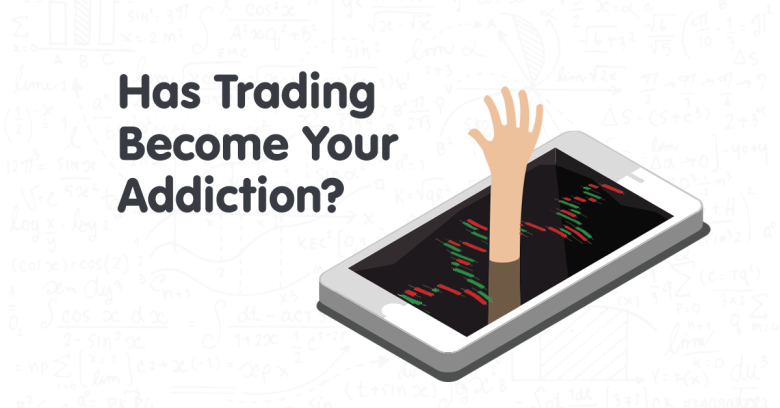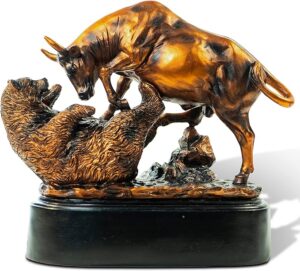
Many of us are lured into the world of forex trading because of the potential to score big bucks, along with plenty of opportunities to exercise one’s brain and will.
For some, the latter only comes in second as the prospect of making sizeable returns is more appealing.
 There are instances when forex traders are just in it to win it, leaving them less focused on the process and solely on the profits.
There are instances when forex traders are just in it to win it, leaving them less focused on the process and solely on the profits.
But these preferences can lead to addiction, which can both be damaging to your account and your mind.
Let me tell you the story of a day trader who ended up wiping out his entire account for the third time in a row.
Despite this, he insists on pursuing forex trading as he opens yet another live account. He even approaches prop firms and hedge funds to trade other people’s money as he believes that his “passion” for trading will magically turn into profits.
To make things worse, this day trader already has a family to support. No matter how much money he already lost in trading, he doesn’t take a step back to study the markets thoroughly or revise his trading plan. Instead, he dips into his family’s savings in order to get his hands on more money for another account.
Does he really have “passion” or is it merely an addiction? You see, an addiction to a certain activity occurs when a person becomes completely dependent on it.
This behavior is typically shown by people who continuously seek out the activity no matter how much negative consequences it brings. What’s worse is that people who are addicted can’t seem to stop the activity even though it’s starting to ruin their lives.
So how do you know if you’re already addicted to trading and not just passionate about it? Here are a few questions you should consider asking yourself:
- Do I often find myself still trading even after I have told myself to stop?
- Has trading created problems in my relationships with other people?
- Has trading caused me financial problems?
- Have I ever been told that I’m trading too much and that I should stop?
- Do I consider myself a big risk-taker, betting more than what I know I should on certain trades?
- Have I tried to erase my losses by increasing my positions?
- Are there times when I trade just because I’m bored?
- Do I feel the pain of losing more intense than the feeling of satisfaction I get from winning?
If you’ve answered yes to all or most of the questions, take a deep breath and calm down. It’s not the end of the world. There are a few ways that you can get over your addiction to trading.
1. Take a break
Leave your trading desk for a while and treat yourself to a nice couple of days, a week, or a month on a tropical island with clear blue waters and fine white sand.
You could also play a sport, or maybe you can just stay home have and binge watch Netflix with some popcorn. Whatever you do, just be sure to give yourself time away from the charts.
Just like an elite athlete, you need time to rest too. This will give your mind some time to recover from market stress and help you come back to trading refreshed and full of vigor.
2. Keep a journal
If I had a dollar for every time I stress how important this is, I’d probably have enough money to get me a couple more bitcoins.
JOURNAL YOUR TRADES!
Often times, those who have an addiction are not aware of their condition. By having a trade journal which details all your ideas, thoughts, and actions, it will be easier for you to see if you have been trading too much.
3. Know your limit
Set a maximum trading loss. It may be anywhere between 1-3% per day. Just set a concrete percentage of your account as your limit. It will help you exercise control over your trading which is something that those who have an addiction do not have.
Remember, it is your top priority to preserve your capital so that you may live to trade another day.
I know that trading can become overwhelming sometimes. There are days when the market just seems irrational and you feel the need to conquer it.
However, you must be careful. Trading should be an avenue for you to exercise discipline; not an instrument of self-destruction.


